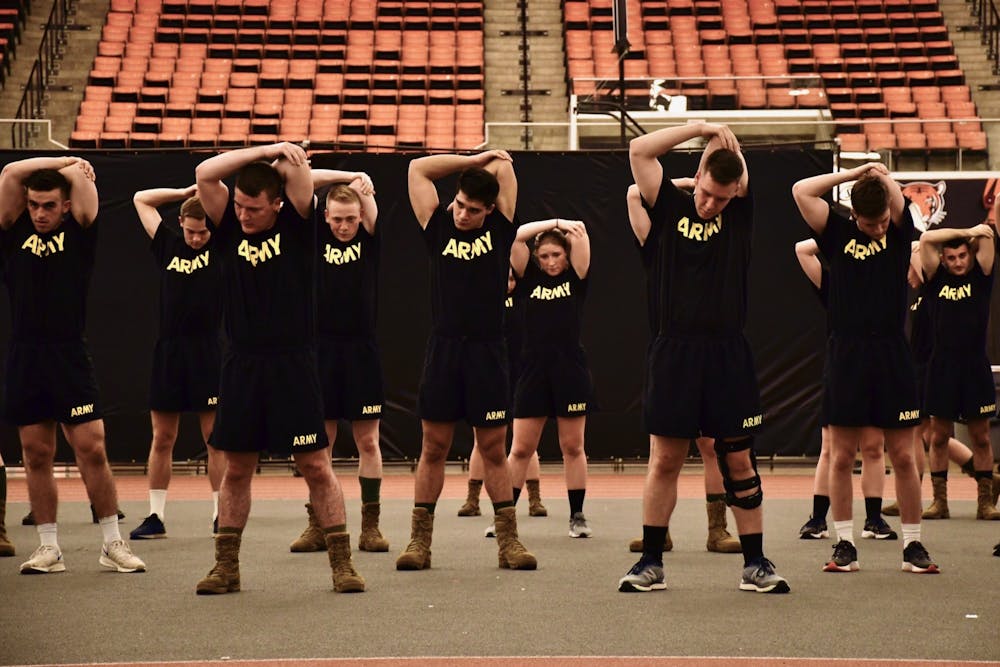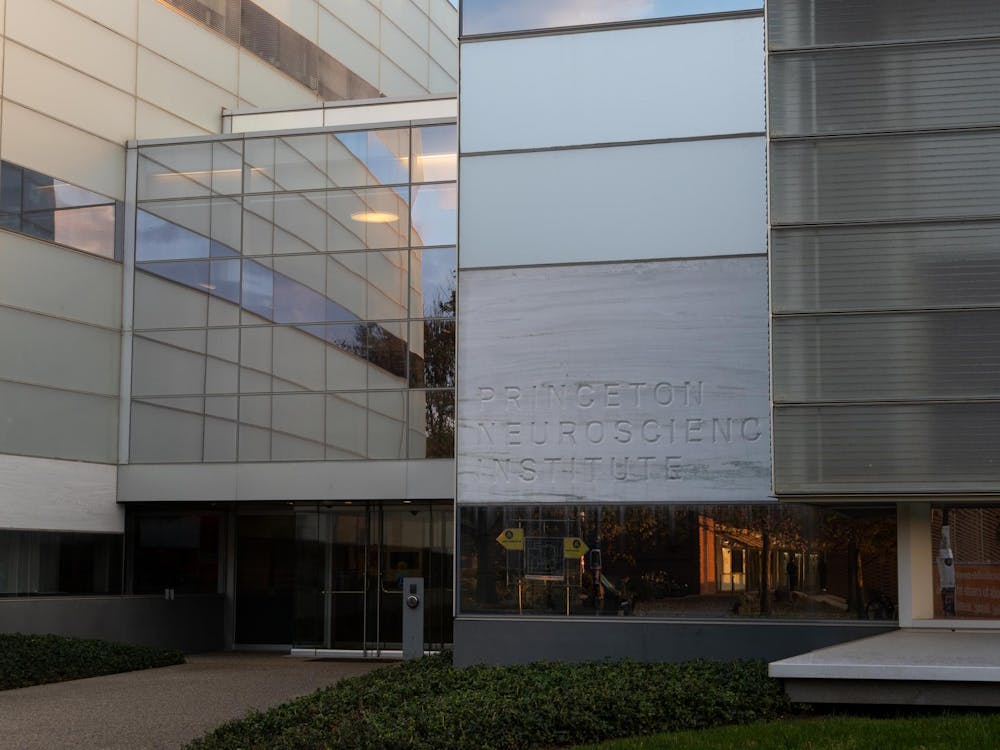This is the second part of reflections from NROTC cadets. Read the first part here.
Another commonality that unites many of us is the existence of a role model who embodies the traits which inspire us to become Naval officers. Below, Suringa and Casano-Boris talk about their upbringings, their families, and the people who inspired them to serve.
William Suringa’s story:
My NROTC journey began 10 years ago in my grandfather’s crammed, dusty study. While typing in his squeaky leather chair, he told stories about living on Kadena Air Force Base in Okinawa. He described the SR-71 Blackbird taking off from the runway and shooting straight up, and talked about his missions intercepting North Vietnamese aircraft communications. Instead of paying attention, I fidgeted with the many aircraft models on his desk. But subconsciously, I absorbed his shared experiences and developed an appreciation for military life. In my senior year of high school, I realized this appreciation by applying to NROTC.
NROTC has provided a rigorous structure to my Princeton experience as a fourth-class (first-year) Midshipman. With ROTC in the mix, I spend more time organizing and planning my schedule — with training early tomorrow morning, do I need to nap after the chemistry lecture to be awake to do my problem set tonight? When am I going to shine my boots for uniform inspections tomorrow? Such questions swirl around the minds of all ROTC students, adding another layer of consideration to each of our day-to-day decisions.
While it may sound cliché, NROTC provides an excellent leadership opportunity. So far, I have found a culture of stepping up: “If I don’t do it, who will?” Students in NROTC step up to challenges and do not hesitate to take charge of their fellow students. When someone asks for volunteers, most of the Midshipmen in the Rutgers/Princeton NROTC Unit would volunteer themselves without hesitation.
Accountability is another facet of military culture that I have experienced so far. The military has a unique definition of accountability. For example, when a Midshipman “gets accountability,” this means that they not only ensure everyone is present and has the necessary gear, but also has been prepared for the event in the days prior. However, it also equates to truly taking responsibility for your peers. This culture exists in how NROTC students talk to each other; when one Midshipman makes a mistake, other Midshipmen — regardless of age or experience — have the responsibility to correct and help them. While this may seem harsh initially, it demonstrates that Midshipmen account for and support each other in matters both big and small.
While life as an NROTC Midshipman makes Princeton an even busier place, I am especially thankful for the friends the program has helped me meet and for the support that these friends have given me.

Lea Casano-Boris’s story:
Honorable, dutiful, courageous, virtuous, selfless — these are words we all aspire to typify. In our youth, we are told stories of superheroes and protagonists who effortlessly personify these traits, but instructions for personally attaining them are much more obscure.
My grandfather, Peter J. Casano, is the first authentic precedent of military life I had in my family. At 18 years old, he enlisted in the United States Navy during the Korean conflict, and thereafter, he served as a Newark, N.J. Emergency Bureau Police Officer for 25 years. A reserved, humble man, he never shares his stories voluntarily, but once they start flowing, the entire room goes still. Not once have I seen him lose his temper, speak poorly about someone, eat before everyone is served, or leave a stone unturned. His chivalry is effortless and effervescent, a product of years of putting the needs of family, neighbors, friends, and community before himself.
Upon applying for college, my twin brother and I mutually decided we wanted to join the Navy — not only to learn how to fit the bill of the words I listed above, but to honor the legacy of a man who dedicated his life to serving. Celebrating his 90th birthday this month, my grandfather attends the gym relentlessly in hopes of preserving his health so he can be our first salute when we commission in 2025. He is my “why.”

Happiness, sadness, fear, anger — these are all quotidian emotions, but motivation is much harder to come by. Having the opportunity to be a member of the Princeton/Rutgers NROTC Unit affords me motivation daily as I embark on this journey alongside my brother, dedicated Midshipman friends, family, and supportive university.
***
As a senior in the program, my story echoes those that my peers shared above. I have a role model in my dad, who served in the Royal Air Force, and in my grandfather, who landed in the first wave on Sword Beach during D-Day in 1944. Their stories made joining the military a natural option for me ever since I was young. As a naturally shy person set to join the Marine Corps on graduation day, the journey to get to this point has been difficult and at times painful. However, it has also shown me the most profound and caring mentorship, and taught me about challenge, acceptance of limits, and growth. Looking forward, it is unclear what life in the Marine Corps will bring, but participating in the NROTC program here at Princeton has helped me reach a point where I feel emotionally and mentally ready to adapt to whatever lies ahead.
Though NROTC is difficult, it is a defining part of our current career aspirations and, through early wakeups and extra military considerations, shapes our everyday lives in a way unlike any other extracurricular. We’re thankful to be part of the program and wait in anticipation for what the future will bring.
Abigail McRea ’23 is an Electrical Engineering major from San Diego, Calif.
Lea Casano-Boris ’25 is a Molecular Biology major from Chatham, N.J.
William Suringa ’26 is from McLean, Va. and plans on pursuing Molecular Biology at Princeton alongside Naval ROTC.
Self essays at The Prospect give our writers and guest contributors the opportunity to share their perspectives. This essay reflects the views and lived experiences of the author. If you would like to submit a Self essay, contact us at prospect[at]dailyprincetonian.com.








